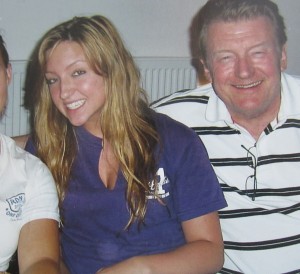 This morning I listened to a radio report on the different ways American and Asian children are taught. The study followed classroom instruction and parental messages to elementary age kids and found a glaring difference: American teachers/parents strive to keep learning positive, eliminating struggle wherever possible. Asian teachers/parents not only let children struggle, they promote it, designing lessons to make it happen.
This morning I listened to a radio report on the different ways American and Asian children are taught. The study followed classroom instruction and parental messages to elementary age kids and found a glaring difference: American teachers/parents strive to keep learning positive, eliminating struggle wherever possible. Asian teachers/parents not only let children struggle, they promote it, designing lessons to make it happen.
An American mother might say, “Jamie, you got a good grade because you’re a smart boy.” An Asian mom might say, “Kim, you won the prize because you kept trying.”
The study included classroom and home observations during which researchers recorded what teachers/parents said to their children, along with their responses. One examiner in an Asian classroom of 8 year olds said he was surprised when the teacher chose a failing student to do his work at the chalkboard up front.
The student grappled with his problem for over an hour, during which time the teacher occasionally asked the class, “Does he have it right yet, class?”
The answer was always no, and the researcher couldn’t believe the young student continued without breaking into tears. When he finally did get it right, the teacher said, “Look, class, he got it. Didn’t he do a great job working for the answer?” Rather than praising the boy’s ability, she praised his perseverance.
Most Asian teachers and parents structure their educating to include tasks they know are beyond the reach of students, just to exercise their mental stick-to-it-tiveness. For example, the study asked children to see if they could find the answer to a math problem intentionally designed to have no solution. On average, American school kids gave up in one minute or less, deeming it impossible. Asian children worked up to an hour before giving up.
But what does God have to say about all this? Is one method right and one wrong?
Scripture definitely touts the value of struggle. We see it in Bible characters and also today, in both visible battles (physical) and invisible ones (mental). Perseverance is a character quality God esteems, and satisfaction comes after we’ve sorted through complicated problems. But what about the dilemmas beyond our reach, those with no solutions? Does God want us to struggle indefinitely with those?
No. At that point he hopes we’ll turn from our own efforts, admit we’re at the end, and request his help. Then we get to watch him do the impossible. As we concede weakness, he imparts strength.
But what about the study on learning? Does one group win and the other lose? Not necessarily. Though Asian children are being taught the value of struggle, educators share a growing concern for their lack of imagination, citing American youngsters as examples of creative strength.
Thankfully the Lord provides unlimited opportunities for all of us to struggle in all categories. The trick is in appreciating it.
The Lord said, “My power is made perfect in [your] weakness.” (2 Corinthians 12:9)






